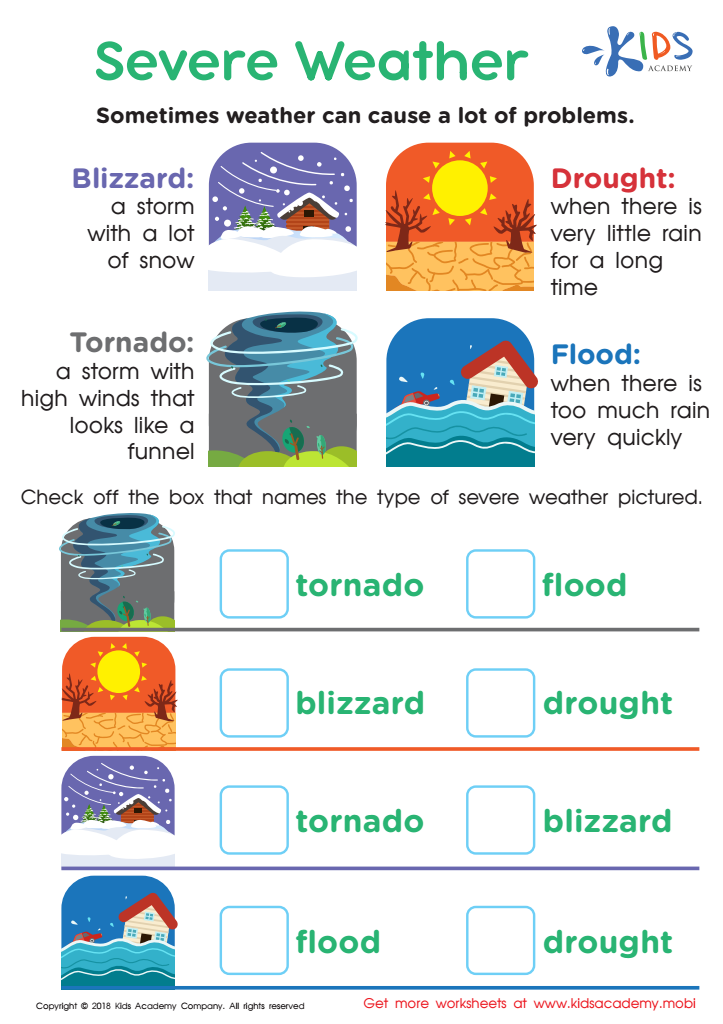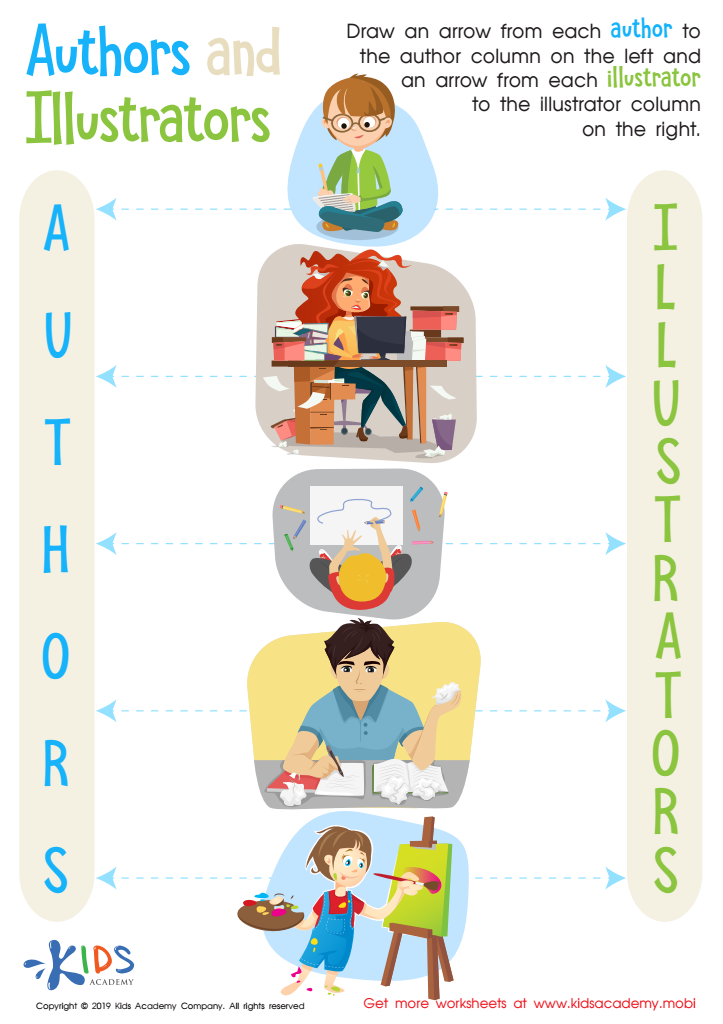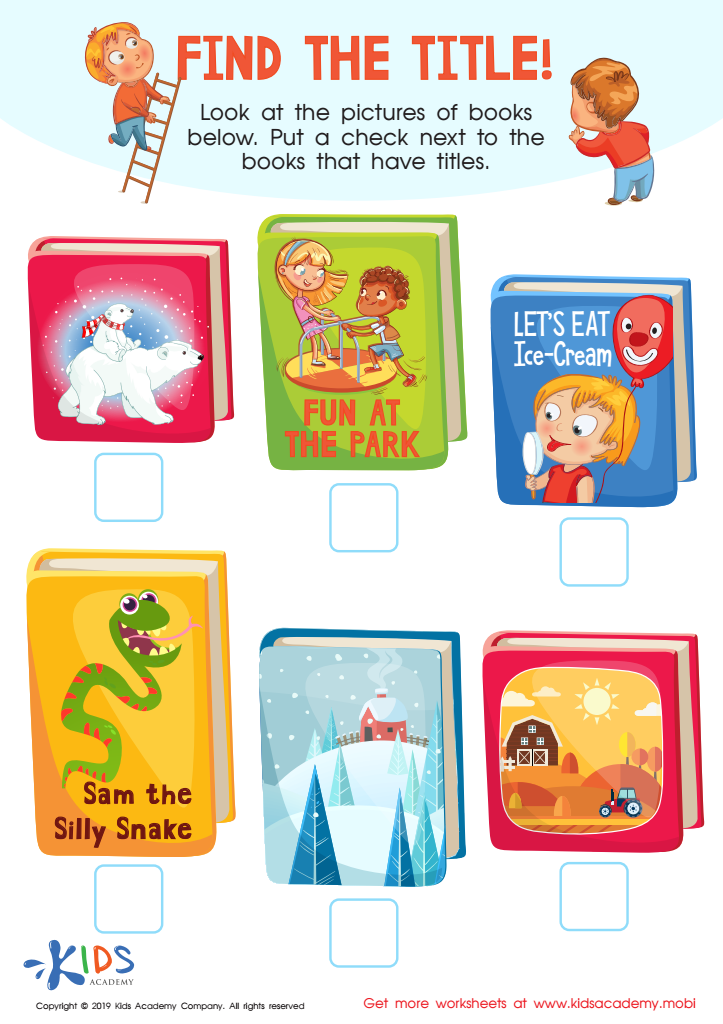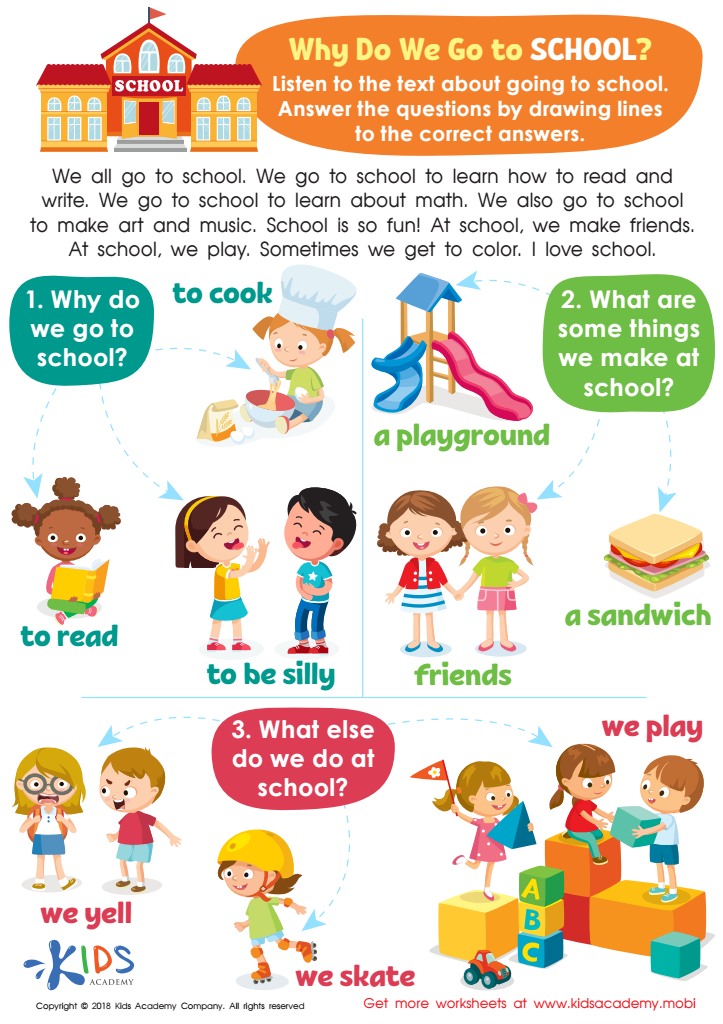Improve reading comprehension Normal Worksheets for Ages 3-5
4 filtered results
-
From - To
Boost your child's reading comprehension skills with our engaging Normal Worksheets designed specifically for ages 3-5. These thoughtfully crafted resources provide a fun and interactive way for young learners to enhance their understanding of stories and texts. Tailored to encourage early literacy development, our worksheets include a variety of activities that promote vocabulary building, story sequencing, and critical thinking. With vibrant illustrations and age-appropriate exercises, children will enjoy exploring and mastering key reading concepts. Perfect for home or classroom use, these worksheets make learning enjoyable while laying a solid foundation for future reading success. Empower your little ones to become confident readers today!


Severe Weather Worksheet


Authors and Illustrators Worksheet


Find the Title Worksheet


Why Do We Go To School? Worksheet
Improving reading comprehension in children aged 3-5 is vital for their overall cognitive and academic development. At this early age, children are forming the foundational skills that will support their future learning. Comprehension goes beyond simply recognizing words; it involves understanding meaning, making connections, and grasping concepts behind the text.
Parents and teachers should care because reading comprehension fosters critical thinking and analytical skills. Early exposure to reading helps children enhance their vocabulary, develop better communication skills, and encourages a lifelong love for reading. Studies show that children who engage with texts early on are more likely to excel in school as they progress through the grades.
Furthermore, strong reading comprehension skills build confidence, a sense of accomplishment, and a positive attitude toward learning. For preschoolers, incorporating interactive reading activities, such as asking questions about the story or connecting it to their own experiences, can significantly enhance these skills.
By prioritizing reading comprehension at this crucial stage, parents and educators lay the groundwork for academic success, equipping children not only with essential literacy skills but also with the ability to engage with and interpret the world around them. This investment in early literacy creates a ripple effect, benefiting children's overall development for years to come.

 Assign to My Students
Assign to My Students















